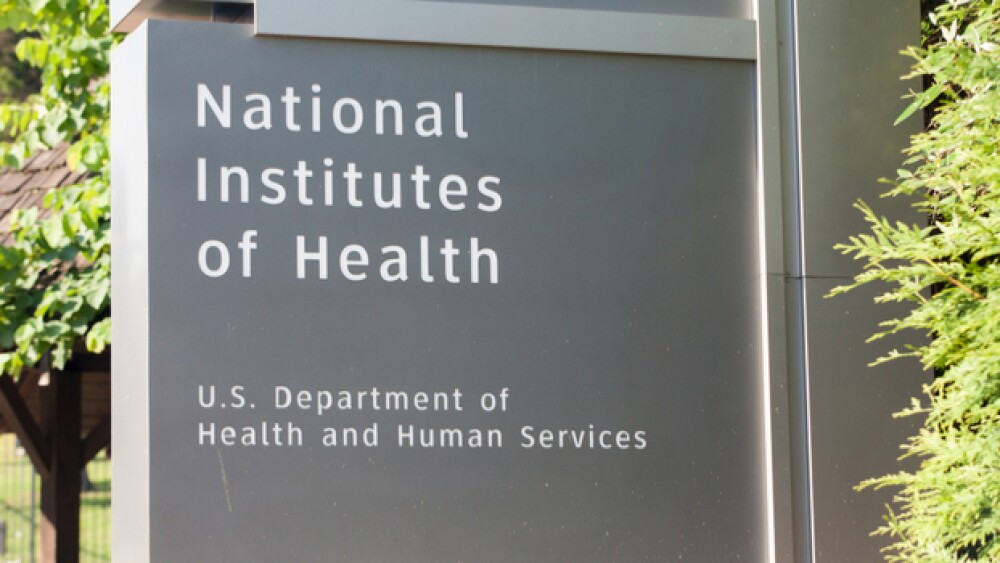Francis Collins, director of the National Institutes of Health (NIH) and the scientist who led the Human Genome Project, weighed in on the recent case of He Jiankui.
Mark Van Scyoc / Shutterstock
Francis Collins, director of the National Institutes of Health (NIH) and the scientist who led the Human Genome Project, weighed in on the recent case of He Jiankui. He Jiankui is the Southern University of Science and Technology of China researcher who used CRISPR to alter the embryos of seven couples to make them resistant to HIV. To date, a set of twins were born and He reported another pregnancy.
In an interview with STAT, Collins called the use of CRISPR to alter human embryos leading to live births “a lesson in the potential for human hubris to take over.”
His research has not been published in a peer-reviewed scientific journal yet. He made his announcement at the Second International Summit on Human Genome Editing held at the University of Hong Kong earlier this week. The details of the research were met with widespread condemnation and criticism by researchers globally.
As the summit wrapped up, the organizers released a statement “identifying areas of research and clinical use that could proceed within current regulatory and governance protocols.” It also broadly criticized He’s work.
He, who was assisted by Michael Deem, a professor at Rice University in Houston, used CRISPR gene editing during in vitro fertilization (IVF) procedures. All the men in the couples had under-control HIV infection. Their sperm was “washed” to separate it from the semen, where the HIV is present. A single sperm was inserted into a single egg to create an embryo. They then used CRISPR-Cas9 gene editing to disable a gene called CCR5. CCR5 creates a protein that allows HIV to enter a cell. The goal was to modify the embryos’ genomes to make them resistant to HIV infection.
Of the twins born, this was only partially successful. In one of the twins, He reported, both copies of the CCR5 gene were disabled; in the other, only a single copy was disabled. How much—if any—immunity this will provide is unknown (and ethically untestable). It is also unknown if there were any negative side effects.
Southern University, Rice University and the Chinese government have all launched investigations.
Of the Chinese government, Collins said, “I welcome their announcement that they will not be allowing other experiments of this sort at this time, and that there will be consequences for people who break this law.”
Collins also noted the NIH was planning to investigate Michael Deem as well. “I think all of us are wondering about the role of Michael Deem, who by his description was present at the consenting of couples that took part in this gene-editing enterprise.”
At least one prominent Chinese scientist has called for the United Nations to hold meetings to determine international guidelines for germline editing. The summit organizers also proposed the development of guidelines.
Collins agrees there should be a “binding international consensus,” although there isn’t much consensus now on how governments should handle turning these types of scientific opinions into law. Nor did he think the United Nations was the most obvious international body to police it. “That’s what everybody’s wrestling with, of course,” Collins told STAT. “We do not, at the present time, have an international bioethics body that is capable of coming up with consensus guidelines that are then enforceable across the world.”
Collins also points out that U.S. laws already prohibit scientists from conducting this type of research. “It was illegal before last week and it’s illegal now. And until there’s a strong reason to change that perspective, it will continue to be so here in the United States.”
The twin baby girls born are being called Lulu and Nana, which are pseudonyms to give them at least some anonymity. Although He’s research hasn’t been published in a peer-reviewed scientific journal yet, he claims he has submitted it, although at this time there’s no public declaration of which journal or journals is considering publication.
The two babies had their genomes altered, presumably permanently, by He’s CRISPR editing. If there were unintended off-target edits or the edits had unintended effects, the children, once they were ready to have children, could pass on their altered genes to their children, as well to all future generations of their children.
The gene alterations were supposed to protect the girls from HIV infection, which in and of itself isn’t a bad thing, although it’s difficult, if not impossible, to ethically test if that works. The biggest problem is CRISPR-Cas9 is precise, but not super precise, and there may have been unintended changes to other parts of the girls’ genomes. There has also been some research published showing that the body’s DNA repair mechanisms may correct for the gene edits.
Although yet peer-reviewed, some researchers at the conference reviewed He’s data and indicate there is evidence that the girls show signs of mosaicism when they were embryos, which means that some cells had the edits and some did not. That also could mean that the goal of the project, HIV resistance, may not have been accomplished. There are also concerns that compromising the CCR5 gene might make the children more susceptible to other infections, such as West Nile Virus or the flu.
Kiran Musunuru, professor of cardiovascular medicine and genetics at the University of Pennsylvania Perelman School of Medicine, told Time, “The implications go beyond just these twins. If we talk about the sanctity of human life, and the inherent dignity of human life, not much has been gained here. These babies were treated as subjects in a grand medical experiment, and we have to believe that they will be studied for the rest of their lives; it’s sad, actually.”





